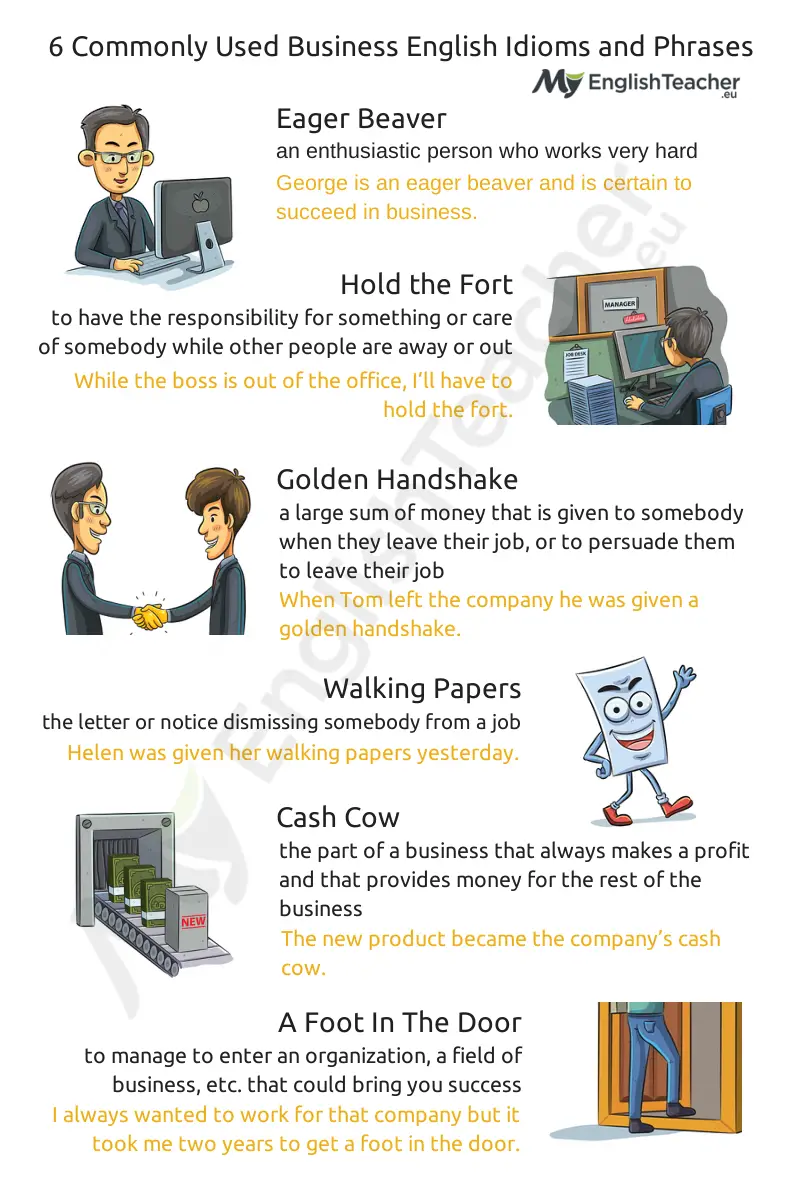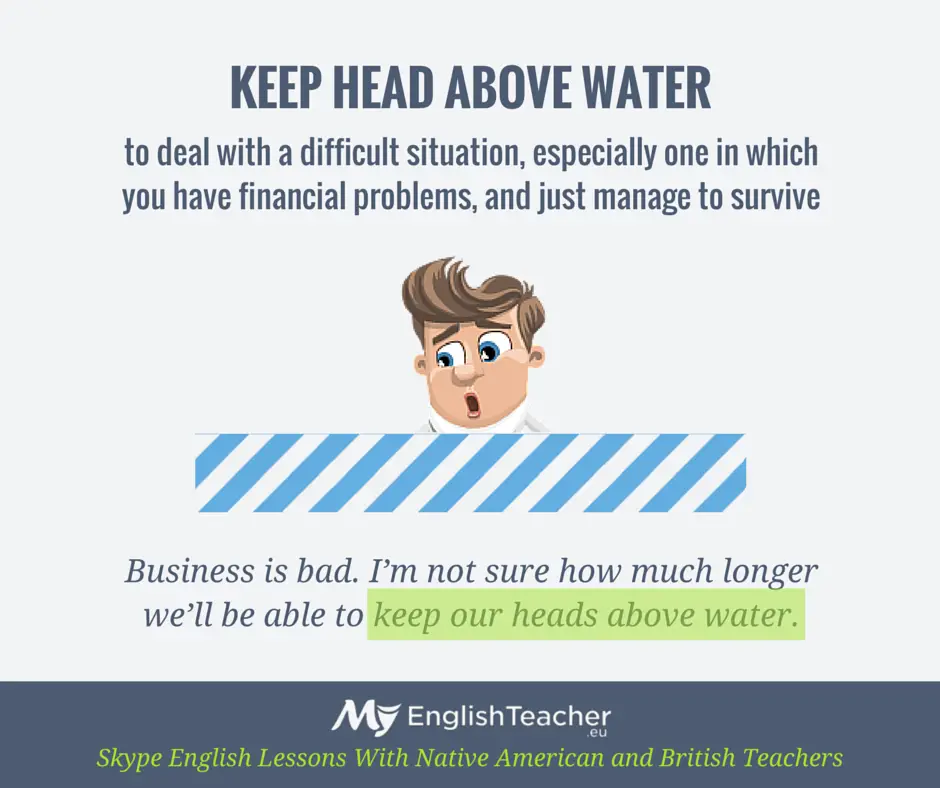 1. a foot in the door
1. a foot in the door
to manage to enter an organization, a field of business, etc. that could bring you success
- I always wanted to work for that company but it took me two years to get a foot in the door.
[Tweet “A FOOT IN THE DOOR: to manage to enter an organization, a field of business, etc. that could bring you success”]
2. cash cow
the part of a business that always makes a profit and that provides money for the rest of the business
- The new product became the company’s cash cow.
[Tweet “CASH COW: the part of a business that always makes a profit and that provides money for the rest of the business”]
3. too many chiefs, not enough Indians
used to describe a situation in which there are too many people telling other people what to do, and not enough people to do the work
- There are too many chiefs and not enough Indians in that company.
[Tweet “TOO MANY CHIEFS, NOT ENOUGH INDIANS: used to describe a situation in which there are too many people telling other people what to do, and not enough people to do the work”]
4. eager beaver
an enthusiastic person who works very hard
- George is an eager beaver and is certain to succeed in business.
[Tweet “EAGER BEAVER: an enthusiastic person who works very hard”]
5. a slice of the pie
a share of something such as money, profits, etc.
- The company made big profits and the workers want a slice of the pie.
[Tweet “A SLICE OF THE PIE: a share of something such as money, profits, etc.”]
6. go belly up
to fail completely
- Last year the business went belly up after sales continued to fall.
[Tweet “GO BELLY UP: to fail completely”]
7. golden handshake
a large sum of money that is given to somebody when they leave their job, or to persuade them to leave their job
- When Tom left the company he was given a golden handshake.
[Tweet “GOLDEN HANDSHAKE: a large sum of money that is given to somebody when they leave their job, or to persuade them to leave their job”]
8. grease someone’s palm
to give somebody money in order to persuade them to do something dishonest
- There are rumours that the company had to grease someone’s palms to get that contract.
[Tweet “GREASE SOMEONE’S PALM: to give somebody money in order to persuade them to do something dishonest”]
9. hold the fort
to have the responsibility for something or care of somebody while other people are away or out
- While the boss is out of the office, I’ll have to hold the fort.
[Tweet “HOLD THE FORT: to have the responsibility for something or care of somebody while other people are away or out”]

10. keep head above water
to deal with a difficult situation, especially one in which you have financial problems, and just manage to survive
- Business is bad. I’m not sure how much longer we’ll be able to keep our heads above water.
[Tweet “KEEP HEAD ABOVE WATER: to deal with a difficult situation, especially one in which you have financial problems, and just manage to survive”]
Read more:
What Happens if You Don’t Drink Enough Water Daily? [Video]
11. red tape
official rules that seem more complicated than necessary and prevent things from being done quickly
- You have to go through endless red tape to start up a business.
[Tweet “RED TAPE: official rules that seem more complicated than necessary and prevent things from being done quickly”]
12. sell ice to Eskimos
to persuade people to go against their best interests or to accept something unnecessary or preposterous.
- That salesman is such a smooth talker, he could sell ice to Eskimos.
[Tweet “SELL ICE TO ESKIMOS: to persuade people to go against their best interests or to accept something unnecessary or preposterous.”]
13. sleeping partner
a person who has put money into a business company but who is not actually involved in running it
- Tom found a sleeping partner to invest money in his business.
[Tweet “SLEEPING PARTNER: a person who has put money into a business company but who is not actually involved in running it”]
14. walking papers
the letter or notice dismissing somebody from a job
- Helen was given her walking papers yesterday.
[Tweet “WALKING PAPERS: the letter or notice dismissing somebody from a job”]
15. a dead duck
a plan, an event, etc. that has failed or is certain to fail and that is therefore not worth discussing
- The project was a dead duck from the start due to a lack of funding.
[Tweet “A DEAD DUCK: a plan, an event, etc. that has failed or is certain to fail and that is therefore not worth discussing”]





![Names of Generations, Years and their Characteristics [Generations Timeline] Names of Generations and years: The Greatest Gen, Baby Boomers, Gen X, Y, Z](https://www.myenglishteacher.eu/blog/wp-content/uploads/2020/06/Names-of-Generations-218x150.png)




















